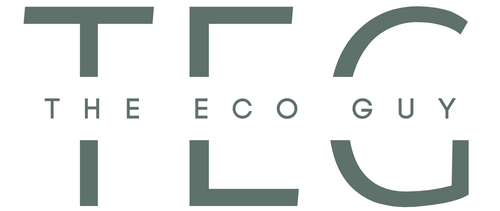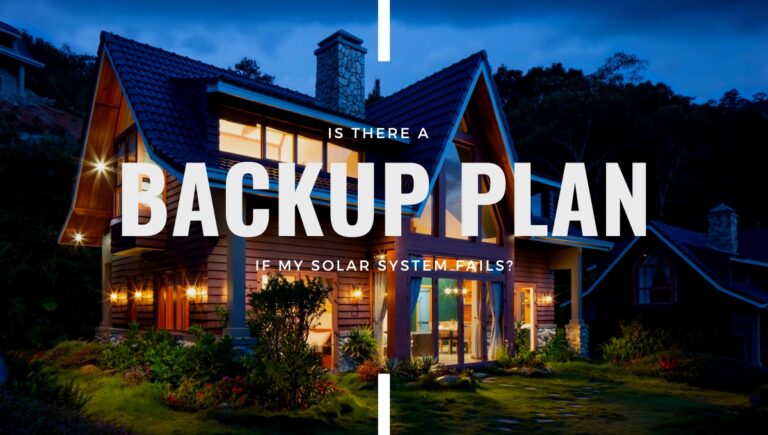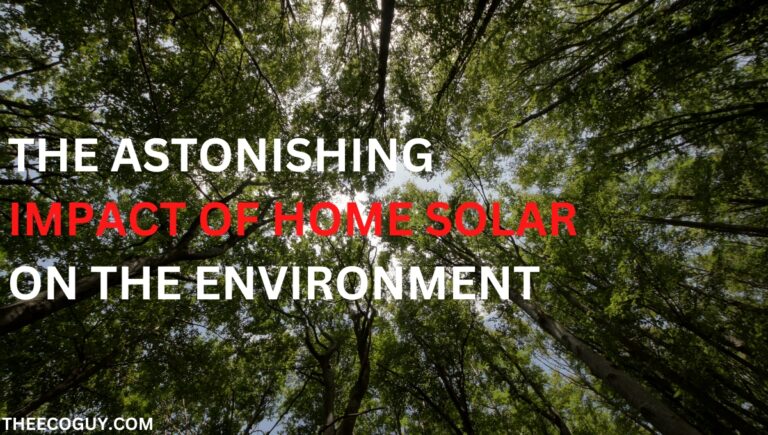How to Determine the Best Location for a Solar System

Solar power has been rapidly gaining popularity as a viable alternative energy source in recent years. It offers a number of benefits to both the environment and homeowners. Home solar systems provide renewable energy, reduce greenhouse gas emissions, and can even help homeowners save money on their utility bills.
The best location to install solar is your roof but if your roof is not suitable then there are alternatives, such as a ground-mounted system.
This article will help determine the best location for home solar and provide an overview of the environmental and economic impacts of home solar systems. We will explore the ways in which home solar can reduce greenhouse gas emissions, help protect natural resources, and provide a financial benefit to homeowners.
What to Consider When Choosing a Location
Sun Exposure & Weather
When choosing a location for solar, it is important to consider sun exposure and weather. Solar panels need direct sunlight in order to generate electricity, so the best locations are those that get plenty of direct sunlight throughout the day.
Additionally, severe weather conditions such as strong winds or heavy snow can affect the performance of solar panels, so it is important to choose a location that is not prone to these types of conditions.
Installing solar on your roof may be an ideal choice since it usually gets more sun than other parts of your property and is protected from extreme weather. However, if you don’t have enough space on your roof or if there are other factors preventing you from installing there then ground-mounted systems may be an option.
Regulations & Ordinances
When installing a home solar system, it is important to consider local regulations and ordinances. Different states and municipalities have their own rules regarding the installation of solar systems that must be followed in order for the system to be legally installed.
These regulations can include restrictions on how large the solar array can be and where it can be located on your property. They may also dictate what type of materials are allowed to be used in the construction of the system or require certain permits before installation begins.
In some cases, homeowners may even need approval from their local zoning board or city council before they begin work on their project. It is important to understand all applicable regulations before beginning any home solar project in order to ensure that everything is done correctly and safely.
If you live in a community with a Homeowners Association (HOA) then you may need to get approval from them before moving forward with the project. HOAs typically have very specific rules about what is allowed on a property, so it is important to check with them before beginning any work.
Cost & Efficiency
The cost of solar energy has been decreasing in recent years, making it a more affordable option for homeowners. Additionally, the efficiency of solar panels has also been increasing as technology advances.
The highest efficiency on the market currently is 22% which means that up to 22% of sunlight can be converted into usable electricity by these types of systems. This makes them much more efficient than traditional forms of energy generation such as coal and natural gas which have efficiencies that are often below 10%.
As technology continues to improve, we can expect further increases in both cost and efficiency for home solar systems.
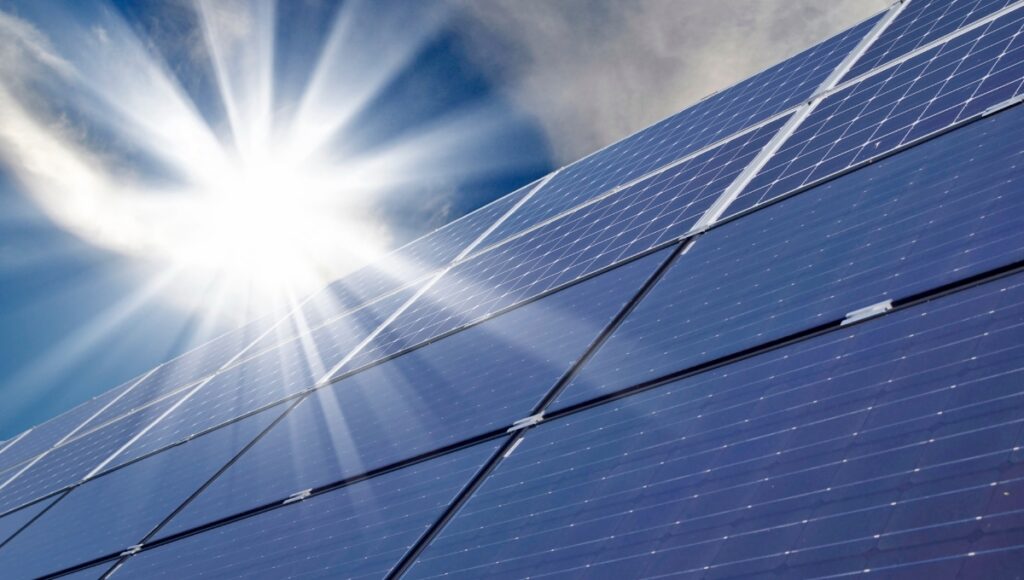
Installation Process
Research Your Options
Before deciding to install a home solar system, it is important to do your research and understand all of the options available. It is important to understand the regulations in your area, as well as what type of materials are allowed for installation.
Additionally, you should consider how much sun exposure the location gets and whether or not extreme weather conditions could affect the performance of your system. You should also look into any incentives or subsidies that may be available from local governments or other organizations that can help make installing a home solar system more affordable.
Finally, you should compare different systems in terms of cost and efficiency so that you can choose one that best meets your needs and budget. Taking time to research these topics will ensure that you have all the information needed before beginning installation on your own solar energy project.
Obtain Necessary Permits and Approvals
Once the research has been done, it is important to obtain the necessary permits and approvals in order to move forward with the home solar system installation. This may include obtaining approval from local government agencies, such as the city planning department, as well as any HOAs if you live in a community that has one.
It is also important to make sure that all of the materials and equipment needed for installation are approved by the local authorities before beginning work on the project. This includes everything from solar panels and inverters to mounting frames and wiring.
Typically, the solar installation company you select will provide a comprehensive package that includes design, permitting, and implementation.
Professional Installation vs DIY Installation
Homeowners considering the installation of a home solar system have two main options: professional installation or DIY installation.
Professional installation, by a qualified and experienced contractor, is highly recommended for safety, reliability, and best results. Working with a professional installer allows you to access the latest technology and best practices for your project and ensures that local codes and regulations are followed.
While DIY installation can be done, it is important to note that the process can become quite complex and may require additional research on your part in order to ensure everything is done correctly and safely. Additionally, there may be safety risks involved with a DIY installation that a professional installer will know how to avoid.
It is also important to note that some solar companies only offer professional installation, so it is important to check with them before deciding whether or not you will attempt DIY installation.
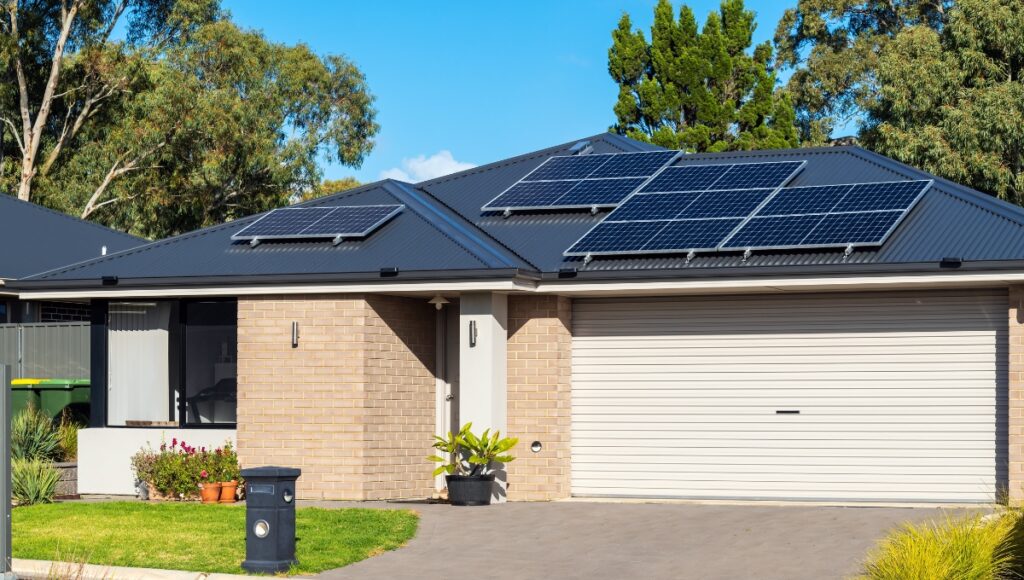
Optimizing Solar Panels for Maximum Efficiency
Factors that Affect Solar Efficiency
When it comes to maximizing the efficiency of solar systems, there are several factors that can have a significant impact. These include the positioning of the solar panels, as well as their size and orientation.
Additionally, other environmental conditions such as temperature and humidity can also affect performance. Furthermore, the quality of materials used in construction is important for long-term reliability and efficiency.
Taking all these factors into account will help ensure that your home solar system is running optimally and providing you with the most cost-effective energy solution.
Benefits of Proper Panel Placement
Proper placement of solar panels is essential for optimal efficiency and performance. When installed correctly, home solar systems can provide reliable energy for years to come with minimal maintenance costs.
Proper panel placement ensures that the system receives maximum exposure to sunlight throughout the day, resulting in improved energy production and cost savings over time. Additionally, proper panel orientation helps reduce any shading issues that could limit system output and increase overall expenses.
Financing Options
When considering the installation of a home solar system, financing options should be taken into consideration. Homeowners have several different ways to finance their projects, including HELOCs (Home Equity Lines of Credit), traditional bank loans, and even leasing arrangements with some companies.
Each option has its own set of pros and cons that must be weighed carefully in order to make an informed decision. Additionally, homeowners may also qualify for various tax credits and incentives depending on their location which could further reduce the cost of installation.
Regardless of which financing method is chosen, it’s important to ensure that all terms are clearly understood before signing any contract or agreement.
HELOCs
Pros:
- Low-interest rates
- Flexible repayment terms
- Potential to deduct interest payments on taxes
Cons:
- Requires good credit and equity in your home
- May require fees or closing costs associated with applying for the line of credit
Traditional Bank Loans
Pros:
Fixed loan amounts and repayment terms can provide predictability in monthly payments
Cons:
- Longer application process compared to other financing options
- Interest may be higher than other methods
Leasing Agreement
Pros:
- Lower upfront cost than traditional bank loans
- Potentially lower electricity bills since utility companies often offer discounts when solar systems are leased
Cons:
Equipped with long-term contracts that can limit flexibility if the homeowner decides they want to switch providers
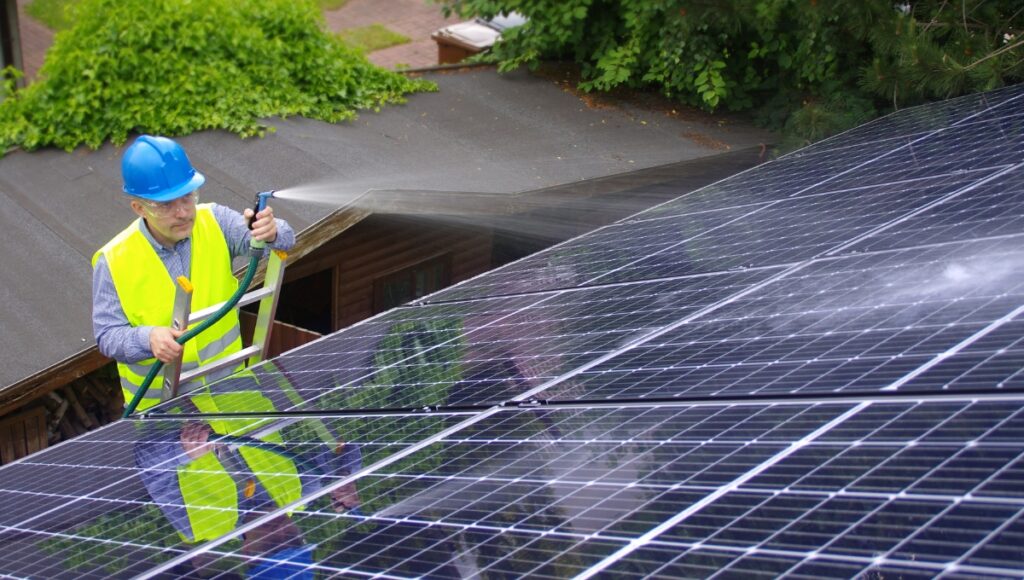
Maintenance and Troubleshooting Tips
Cleaning Tips to Keep Your Panels Efficient
Having a clean solar panel is essential to keep your system running efficiently and producing maximum energy. Dust, dirt, pollen, and other debris can accumulate on the panels over time, resulting in lower output and higher electricity bills. Fortunately, with a few simple tips and regular maintenance, it’s easy to ensure that your home solar system is always operating at peak performance.
DIY Guide for Cleaning Solar Panels
- Gather Your Supplies: You will need water (preferably distilled), a soft cloth or brush (never use abrasive materials like steel wool), a non-abrasive cleaning solution of your choice, protective eyewear/gloves if desired, and either a ladder or telescoping pole with an attached squeegee tool depending on the type of installation you have.
- Turn off the System: Before beginning, any work on your solar panels make sure they are completely disconnected from all electrical sources by turning off power inverters as well as circuit breakers associated with the system.
- Rinse Off Debris: Use either a hose or bucket filled with distilled water to rinse away any surface dirt or dust from the panels before applying cleaning solutions directly onto them. If using an extension pole and squeegee tool, be sure to work from the bottom of the panel up.
- Examine for Damage: After rinsing off debris it’s a good idea to take a closer look at your panels to check for any potential damage that may have occurred during the cleaning process. If you notice any chips, cracks, or other signs of physical damage you should contact a professional immediately.
- Apply Cleaning Solution: If no damage is found, use your soft cloth or brush to apply a non-abrasive cleaning solution (preferably one that is specifically made for solar panels) onto the surface of the panel and gently wipe away any remaining dirt or debris. Rinse off the panel afterward with distilled water and dry using a soft cloth.
Through simple maintenance and regular cleaning, homeowners can easily keep their home solar systems running efficiently and producing maximum energy output.
Inspections and Troubleshooting Issues
When inspecting a home solar system for any issues, it is important to look for signs of wear and tear, such as discoloration or cracking of the solar panel’s frame or glass. Additionally, homeowners should check that all wiring and connections are secure and free from corrosion. If there are any loose connections, these should be tightened up to ensure that a steady flow of electricity can pass through.
If the system is not producing as much energy as expected, the issue may be related to something such as incorrect panel orientation or shading from nearby trees or buildings. To troubleshoot these issues, homeowners should consult their solar installation manual and check for any changes in environmental factors that could be impacting the system’s performance.
Final Thoughts
Solar power is an incredible renewable resource that can help homeowners save money and reduce their environmental impact.
As we’ve seen, it requires regular maintenance to ensure optimal performance but the rewards are well worth it. With a few simple tips and some basic DIY know-how, you can keep your solar panels running efficiently for years to come.
If you’re interested in getting started with home solar, EnergySage.com is here to help! Their online marketplace makes finding qualified installers easier than ever before so take the first step today and start exploring all of the amazing benefits of going green with residential solar energy!
